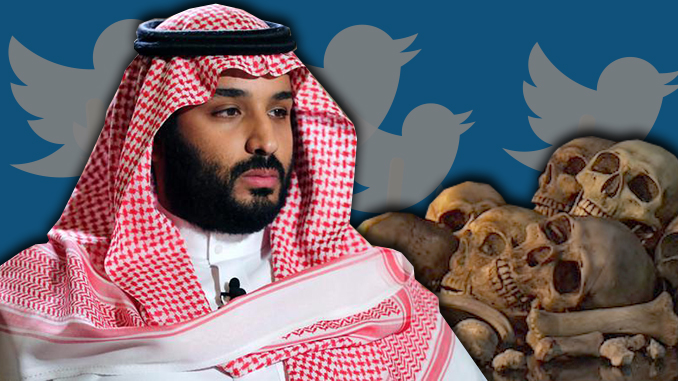
The Saudi crown continues its online propaganda war against dissidents.
By S. T. Patrick
Still politically shaken by the recent murder of exiled Saudi journalist Jamal Khashoggi, Saudi Crown Prince Mohammad bin Salman and his kingdom now have to contend with a New York Times report claiming that the Saudi government was grooming young Saudi men to lace Twitter with propagandistic tweets supporting the ruling royal family. Ali Alzabarah, then a Twitter employee, was fired from his position in December 2015 after company administrators were informed by Western officials that he was using the social media platform to spy on Saudi dissidents.
Saudi Arabia has engaged in a major public relations push worldwide since bin Salman’s ascension, but the 2010 Arab Spring’s effect on recent events should not be discounted. The House of Saud has been at the forefront of Middle Eastern governments proactively combating dissension and criticism online.
Twitter finds itself in a conundrum regarding propaganda. It can clamp down on “bots” that troll genuine tweets, yet it must be more delicate when punishing or banning humans with genuine beliefs—or even state-sponsored beliefs. The latent criticism Twitter has received since the Alex Jones ban has forced some to question the political persuasions and intentions of the social media giant.
Saudi Arabia had advertised the propaganda positions on Twitter, but it was not until a respondent was contacted and interviewed that the true nature of the position was revealed. The chief of the operation was Saud al-Qahtani, a top advisor to bin Salman, who was fired by the crown prince after the kingdom acknowledged the death of Khashoggi. Al-Qahtani had overseen the formation of a troll farm in Riyadh, whose sole purpose it was to sing the praises of royal policy and decry dissent. The move to recruit Alzabarah and others like him was an attempt to move within the walls of the social media companies rather than operating on the same playing field as the average user.
Al-Qahtani had served as a legal and media advisor to bin Salman. In 2017, he launched the hashtag #TheBlacklist, which urged Saudis to add the names of Qatar sympathizers to the list. Saudi Arabia, the United Arab Emirates, Egypt, and Bahrain had severed diplomatic ties with Qatar. Al-Qahtani warned that anyone conspiring against any of the four countries opposing Qatar would be unable to escape trial.
 “The New Arab” website has compared Al-Qahtani to a political hatchet man, stating that his main objectives were “whipping the country’s journalists into submission, promising to smite the enemies of his masters, and peddling fake news.”
“The New Arab” website has compared Al-Qahtani to a political hatchet man, stating that his main objectives were “whipping the country’s journalists into submission, promising to smite the enemies of his masters, and peddling fake news.”
When the Democratic Party blamed Russian interference on Facebook for the 2016 loss of Hillary Clinton to Donald Trump, social media companies were faced with the new problem of platform abuse levied in the name of state-sponsored manipulation. Forced between the libertarian perspective of free speech absolutism and the tendency of moderns to over-control dialogue, big tech faced an ideological problem that soon became very real with the death of Saudi royal critic Khashoggi.
Big tech is ill-equipped to deal with the complex machinations of foreign influence, both subtle and overt. Many of the most prominent decision-makers are young men and women who rode their tech genius to silicon stardom. Now they will face off with domestic and foreign political operators from nations the U.S. still labels as allies.
S.T. Patrick holds degrees in both journalism and social studies education. He spent ten years as an educator and now hosts the “Midnight Writer News Show.” His email is [email protected].



